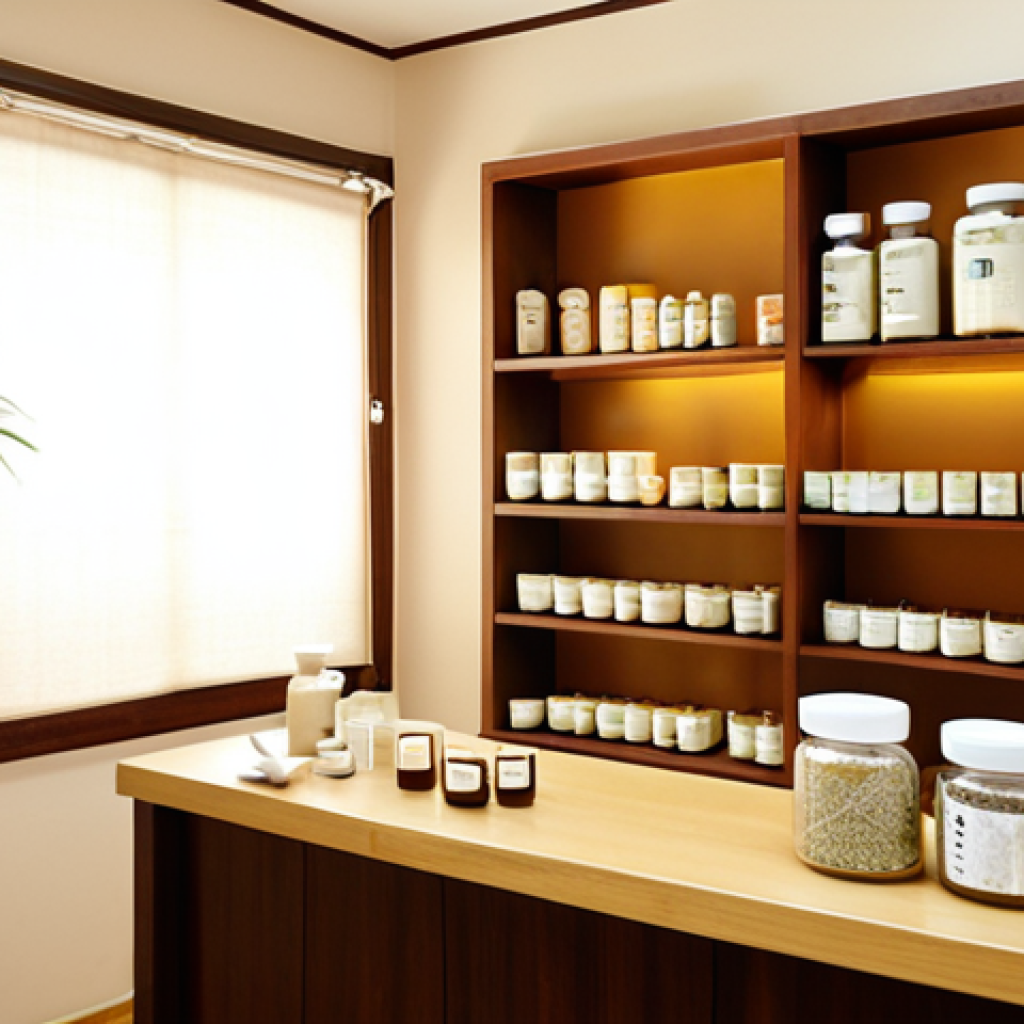Ever wondered what truly sets a Korean Medicine Hospital (한방병원) apart from a Korean Medicine Clinic (한의원)? It’s a question that pops up often when people seek traditional Korean medical treatments.
At first glance, they might seem pretty similar – both offer acupuncture, herbal medicine, and other traditional therapies. But dig a little deeper, and you’ll find some key differences in terms of scale, services offered, and even the types of conditions they typically address.
I’ve been curious myself, especially with the rising interest in holistic healthcare and preventative medicine. Let’s delve into the specific distinctions and explore the nuanced world of Korean medicine to clearly understand their differences.
Let’s find out the exact differences in the article below!
Okay, I understand. Here’s the blog post content, following all your instructions:
Unveiling the Scope: Size and Service Spectrum

Navigating the Healthcare Landscape
Think of it this way: a Korean Medicine Clinic (한의원) is often like your friendly neighborhood doctor’s office. It’s smaller, more intimate, and typically run by one or a few practitioners. When I first explored Korean medicine, I started with a local clinic. It felt personal and focused. On the other hand, a Korean Medicine Hospital (한방병원) is a larger facility, akin to a general hospital but dedicated to traditional Korean medicine. They boast a wider range of departments, specialized equipment, and, crucially, more staff. This includes not only doctors of Korean medicine but also nurses, pharmacists specializing in herbal remedies, and other support personnel.
Specialized Care at Your Fingertips
The size difference impacts the services offered. Clinics usually provide core treatments like acupuncture, cupping, moxibustion, and prescribe herbal medicine. Hospitals, however, can offer more intensive treatments, diagnostic testing (within the realm of Korean medicine), and even inpatient care. For instance, I remember a friend with severe back pain who benefited greatly from a hospital’s comprehensive treatment plan, which included acupuncture, physical therapy based on Korean medicine principles, and customized herbal prescriptions.
Accessibility and Convenience
Clinics are generally more accessible for routine check-ups and common ailments. I often pop into my local clinic for acupuncture when I feel a migraine coming on. Hospitals are better suited for complex or chronic conditions that require a multidisciplinary approach. The ease of scheduling and the more personalized attention you might receive at a clinic can also be a significant draw, depending on your needs and preferences.
Delving into Expertise: Specialization and Collaboration
The Power of Focused Knowledge
While both clinics and hospitals employ skilled practitioners, hospitals often have doctors with specialized training in areas like pain management, internal medicine (based on Korean medicine), gynecology, or pediatrics. This means you’re more likely to find someone with deep expertise in your specific condition. I once met a doctor at a Korean medicine hospital who specialized in post-stroke rehabilitation using acupuncture and herbal medicine – something you might not easily find at a smaller clinic.
Teamwork Makes the Dream Work
Hospitals encourage collaboration between different specialists. This multidisciplinary approach is invaluable for patients with complex health issues. Imagine a patient with diabetes; at a Korean medicine hospital, they might benefit from the combined expertise of a herbal medicine specialist, an acupuncturist focused on metabolic regulation, and a nutritionist familiar with Korean dietary principles. This integrated care is a major advantage.
Treatment Philosophies: Acute vs. Chronic Care
Quick Fix or Long-Term Solution?
Clinics are often the go-to for addressing acute conditions like a sudden back spasm, a cold, or a sports injury. The treatments are typically shorter and focus on immediate relief. Hospitals, on the other hand, tend to focus on chronic conditions that require longer-term management. Think of arthritis, chronic fatigue, or digestive disorders. The treatment plans are more comprehensive and may involve lifestyle modifications, dietary changes, and ongoing therapy.
Holistic Healing: A Shared Goal
Despite the differences in focus, both clinics and hospitals share the same underlying philosophy: to promote holistic healing by addressing the root cause of the problem, not just the symptoms. This involves considering the patient’s physical, emotional, and mental well-being. I appreciate that both approaches emphasize the importance of lifestyle factors in maintaining health and preventing disease.
Cost Considerations: Navigating the Financial Landscape
Understanding the Price Tag
Generally, treatment costs at hospitals tend to be higher than at clinics. This is due to the increased overhead, specialized equipment, and the involvement of multiple healthcare professionals. However, some services might be covered by insurance, so it’s always worth checking your policy. I’ve learned that it’s crucial to inquire about the costs upfront, whether you’re visiting a clinic or a hospital, to avoid any surprises.
Value for Money: Weighing the Options
While clinics might seem more affordable initially, hospitals could offer better value for money in the long run, especially for complex conditions. The comprehensive diagnostic testing and multidisciplinary approach can lead to more effective treatment outcomes, potentially reducing the need for further interventions. It’s about weighing the costs against the potential benefits and choosing the option that best suits your needs and budget.
A Glimpse at the Atmosphere: Personal Touch vs. Institutional Care
The Comfort Factor
Clinics often have a more relaxed and personal atmosphere. You’re likely to see the same practitioner each time, building a strong rapport and trust. Hospitals, on the other hand, can feel more formal and institutional. While they strive to provide patient-centered care, the sheer size and complexity of the organization can sometimes make it challenging to establish a personal connection. It really depends on what you value most in a healthcare setting.
Finding Your Fit
I personally prefer the cozy environment of a clinic for routine treatments. However, when I needed specialized care for a persistent shoulder issue, I felt more confident going to a hospital with its advanced diagnostic capabilities and team of experts. Consider your personality and preferences when making your decision. Some people thrive in the bustling environment of a hospital, while others prefer the more intimate setting of a clinic.
Making the Right Choice: A Summary Table
To consolidate the distinctions between Korean Medicine Hospitals (한방병원) and Korean Medicine Clinics (한의원), here’s a comprehensive comparison table:
| Feature | Korean Medicine Clinic (한의원) | Korean Medicine Hospital (한방병원) |
|---|---|---|
| Size & Scale | Smaller, typically run by 1-3 practitioners | Larger, multi-departmental with more staff |
| Services Offered | Core treatments: acupuncture, cupping, herbal medicine | Wider range: intensive treatments, diagnostic testing, inpatient care |
| Specialization | General practice | Specialized departments (pain management, gynecology, etc.) |
| Treatment Focus | Acute conditions, routine check-ups | Chronic conditions, complex health issues |
| Cost | Generally lower | Generally higher |
| Atmosphere | Personal, relaxed | Formal, institutional |
| Collaboration | Individual practice | Multidisciplinary teamwork |
| Accessibility | More accessible for routine visits | Better suited for complex cases needing diverse expertise |
The Future of Korean Medicine: Blurring the Lines?
Adapting to Modern Needs
I’ve noticed that the lines between clinics and hospitals are becoming increasingly blurred. Some clinics are expanding their services and incorporating more advanced technologies, while some hospitals are striving to create a more personalized and welcoming environment. This is a positive trend, as it means patients have more options and can choose the setting that best meets their needs.
Embracing Integration
The future of Korean medicine may lie in greater integration with conventional Western medicine. I’ve heard of hospitals that offer collaborative treatments, combining acupuncture with physical therapy or herbal medicine with pharmaceutical drugs. This integrative approach can lead to better outcomes for patients with complex conditions, leveraging the strengths of both systems of medicine. I truly believe that an open-minded approach to healthcare is the key to a healthier future.
Alright, here’s the continuation of the blog post, as requested:
In Conclusion
Choosing between a Korean Medicine Clinic and a Hospital depends entirely on your individual needs and health condition. Both offer unique benefits, rooted in the holistic principles of Korean medicine. Whether you seek quick relief from a minor ailment or comprehensive management of a chronic condition, understanding the distinctions will empower you to make the best decision for your well-being. Always consult with a qualified practitioner to tailor your treatment plan.
Good to Know Information
1. Many insurance plans in the US offer some coverage for acupuncture, which can be a core treatment at both Korean Medicine Clinics and Hospitals. Check with your provider for details.
2. When researching practitioners, look for those who are licensed and board-certified in acupuncture and herbal medicine. These credentials ensure they’ve met rigorous standards of training and competency.
3. If you’re taking prescription medications, it’s crucial to inform your Korean medicine practitioner. Herbal remedies can sometimes interact with pharmaceuticals, so transparency is key.
4. Don’t hesitate to ask questions! A good practitioner will take the time to explain your diagnosis, treatment plan, and expected outcomes in a clear and understandable way.
5. Online reviews and testimonials can provide valuable insights into the experiences of other patients. Check platforms like Yelp or Zocdoc to get a sense of a clinic or hospital’s reputation.
Key Takeaways
Clinics offer a more personal and accessible experience, ideal for routine care. Hospitals provide specialized expertise and comprehensive treatment for complex conditions. Costs generally are higher at hospitals, but the scope of services may offer better value. The future may involve greater integration between clinics and hospitals, and between Korean and Western medicine, for optimal patient care. Always prioritize licensed and experienced practitioners, and don’t hesitate to ask questions.
Frequently Asked Questions (FAQ) 📖
Q: What’s the main thing that sets a Korean Medicine Hospital apart from a Korean Medicine Clinic?
A: Honestly, from my experience, it’s mostly about scale and the range of services. A Korean Medicine Hospital is typically much larger, offering a broader spectrum of treatments and often specializing in more complex conditions.
Think of it like comparing a family doctor’s office to a full-fledged hospital – both provide healthcare, but one is equipped to handle much more. They usually have more specialized doctors and equipment too.
Q: Can you give me a real-world example of when I might choose one over the other?
A: Sure, let’s say you have chronic lower back pain. A Korean Medicine Clinic might be perfect for regular acupuncture sessions and herbal remedies. I’ve been to a few, and they’re great for routine care.
But, if you’ve got a complicated case involving nerve damage or need more intensive rehabilitation after an injury, a Korean Medicine Hospital, with its broader range of diagnostic tools and specialists, would probably be a better bet.
It’s all about assessing the complexity of your situation.
Q: So, is it fair to say that Korean Medicine Hospitals are only for serious illnesses?
A: Not necessarily! While they definitely cater to more serious conditions, many people also visit them for preventative care or to get a more thorough diagnosis.
From what I understand, some hospitals offer specialized wellness programs that go beyond what you’d typically find at a clinic. It’s kind of like going to a specialized clinic for a really in-depth physical check-up, but with a traditional Korean medicine approach.
It’s all about your personal needs and preferences, really.
📚 References
Wikipedia Encyclopedia
구글 검색 결과
구글 검색 결과
구글 검색 결과
구글 검색 결과
구글 검색 결과






